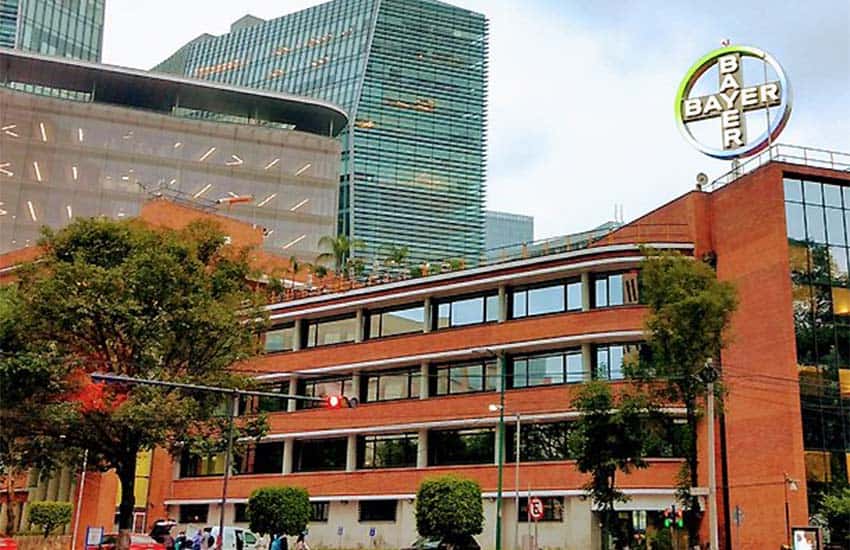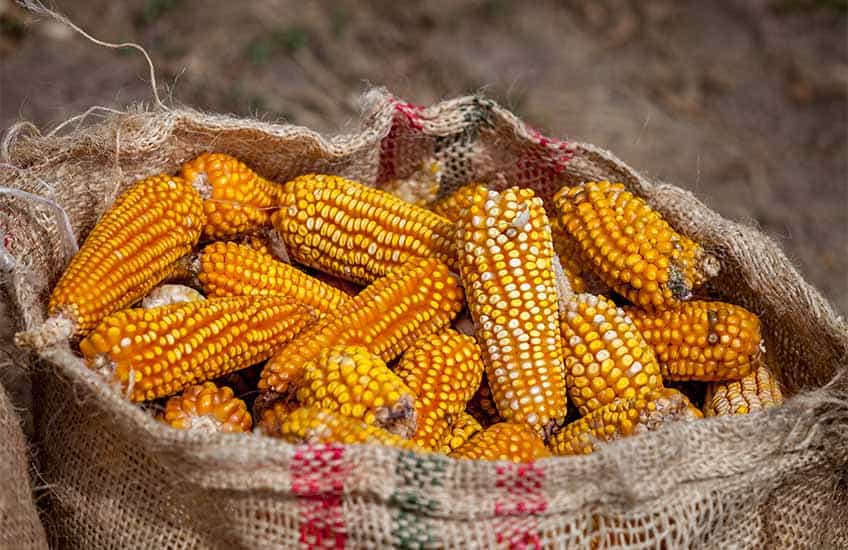German multinational Bayer has obtained a court order against the application of a presidential decree that mandated the elimination of glyphosate, a controversial herbicide, by January 2024.
Published on December 31, 2020, the decree also ordered the phasing out of genetically modified (GM) corn imports, including seeds, for use in the food industry by the same date.
The federal Environment Ministry (Semarnat) said in a statement last Friday that it disagreed with the injunction granted by a Mexico City-based administrative judge and would challenge it.
It said that the injunction was granted to Monsanto, but that company – which produced the glyphosate-based herbicide Roundup as well as GM seeds – no longer exists as it was acquired by Bayer in 2018. The German company promptly retired the controversial Monsanto brand name.

In its statement, Semarnat asserted that Bayer had sought to ignore the precautionary principle with “deceptive arguments.”
The injunction the company obtained allows it to continue supplying glyphosate and GM seeds to Mexico. Although the decree’s elimination target date is still one and a half years away, Bayer has already been affected by the federal government’s efforts to phase out its controversial products as health regulator Cofepris last year refused to issue a permit for a new GM seed variety it developed.
Semarnat noted that the ruling handed down by Judge Francisco Javier Rebolledo is not definitive and asserted that it “only benefits a private multinational company and didn’t take into account the harm to the health of Mexicans due to use of” glyphosate. The herbicide’s adverse effects are “proven by medical and scientific research,” it added.
Semarnat said it would file an appeal against the judge’s decision, noting that it had 10 days to do so.
“The presidential decree has been received with great approval by the Mexican population and by many other countries that recognize that the herbicide glyphosate is extremely harmful to human and environmental health,” it added.
“In addition, this decree provides continuity to Mexican society’s long struggle to recognize corn as bio-cultural heritage that gives us identity, and prevents the introduction of genetically modified varieties that … deteriorate the genetic reservoir that has been built throughout thousands of years.”
Semarnat also said it has collected “sufficient information” to prove that glyphosate causes harm to pollinators such as bees and to water, soil, flora and air.
“We cannot step back from our obligation to protect life, ensure an adequate environment and conserve biodiversity,” said Environment Minister María Luisa Albores. “That’s why we will … continue using the precautionary principle for the … implementation of the presidential decree.”

The Sin Maíz No Hay País (Without Corn There Is No Country) national campaign, a network of over 300 organizations opposed to glyphosate and GM food production, also slammed the judge’s decision to grant an injunction to Bayer.
“It’s a ruling full of formalistic arguments with a deficient handling of human rights and environmental standards,” it said in a statement.
“… In his ruling, … [the] judge cites the precautionary principle in various places but he interprets it incorrectly, breaching his constitutional obligation to protect the human rights of the Mexican population, such as the rights to health and a healthy environment. In the same way, he breaches international treaties and environmental principles,” Sin Maíz No Hay País said.
The campaign said that Rebolledo received scientific literature from the government that sets out the risks posed by glyphosate and GM corn but “without a robust legal argument,” he decided to ignore it and in doing so “put the interests of the complainant company before the human rights of the population.”
His decision, it continued, “places food sovereignty and the health of the planet and people at risk.”
“It’s an attack against the common interest of Mexicans, the biodiversity [that coexists with] present and future generations … and the constitutional right to a healthy environment and adequate nutrition,” Sin Maíz No Hay País said.
“… Suspending the application of the decree for Bayer represents an infringement on the health of the Mexican population because there is solid scientific evidence that … [exposes] the harm that glyphosate causes to health.”
Mexico News Daily
